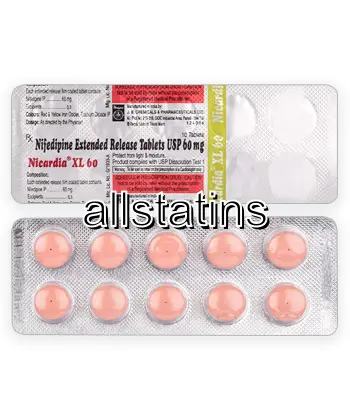| Package | Dosage | Price | Price per Dose | |
|---|---|---|---|---|
| Dosage: 30mg | ||||
| 180 pill | 30mg | $391.07 | $2.17 | |
| 120 pill | 30mg | $279.85 | $2.33 | |
| 90 pill | 30mg | $231.41 | $2.57 | |
| 60 pill | 30mg | $174.00 | $2.91 | |
| 30 pill | 30mg | $102.24 | $3.41 | |

Procardia Description
Overview of Procardia
Procardia, the brand name for nifedipine, is a medication commonly used in the United States to treat conditions related to the heart and blood vessels. It belongs to a class of drugs known as calcium channel blockers. Originally developed to help manage angina, or chest pain caused by reduced blood flow to the heart, Procardia is now also prescribed for other cardiovascular issues, including hypertension. Its effectiveness and safety have made it a popular choice among healthcare providers and patients alike.
How Procardia Works
This medication works by relaxing the muscles of the heart and blood vessels. Specifically, it blocks calcium from entering the smooth muscle cells of the heart and arteries. As a result, blood vessels dilate, reducing blood pressure and easing the workload on the heart. This action helps to decrease chest pain and prevent episodes of angina. Additionally, for patients with high blood pressure, Procardia contributes to lowering elevated blood pressure levels, promoting better cardiovascular health.
Usage and Dosage in the US
In the United States, Procardia is available in various forms, including immediate-release tablets and extended-release formulations. The dosage depends on the condition being treated, the patient's age, weight, and overall health. Commonly, healthcare providers start patients on a low dose, gradually increasing as needed to achieve the desired therapeutic effects. It is crucial to follow the prescribed instructions precisely and not to change the dose without consulting a healthcare professional. Consistency in taking the medication is vital for optimal results and to minimize side effects.
Patient Reviews and Effectiveness
Many patients in the US report that Procardia effectively alleviates chest pain and helps control high blood pressure. They often note improvements in their quality of life, especially those who have struggled with angina or hypertension for years. Some users mention experiencing quick relief from angina attacks after taking the medication. However, others warn about potential side effects, including dizziness, swelling of the ankles, and flushing. It's worth mentioning that individual responses vary, and some may need adjustments or alternative treatments.
Side Effects and Precautions
While Procardia is generally well tolerated, side effects can occur. Common issues include headache, dizziness, and a sensation of warmth or flushing. More rarely, users may experience rapid heartbeat, nausea, or allergic reactions. Patients with certain health conditions, such as low blood pressure or heart failure, should discuss these concerns with their healthcare provider before starting Procardia. It is also important to inform the doctor of all other medications being taken to avoid harmful interactions.
Availability and Legal Status in the USA
Procardia is available in the US via prescription from licensed healthcare providers. It can be purchased at local pharmacies or through established online pharmacies that comply with U.S. regulations. When buying online, it is crucial to verify the legitimacy of the pharmacy to ensure medication safety and authenticity. Patients should never attempt to self-medicate or buy medications from unverified sources, as this can pose serious health risks.
Final Thoughts
Overall, Procardia remains a trusted option for managing angina and high blood pressure in the United States. Its proven efficacy, combined with a well-established safety profile, makes it a go-to medication for many patients. However, as with any prescription drug, it is essential to use Procardia under medical supervision. Regular check-ups and open communication with healthcare providers help optimize treatment and address any side effects or concerns that may arise during therapy.